Peas contain antioxidants providing potent health benefits to eye, heart, and skin health. Therefore, peas are valuable in terms of health benefits for humans. However, not all peas are safe for dogs. First, you must know that there are many kinds of peas, such as snap and canned peas, chickpeas, and black-eyed peas.
However, if you are looking at your pantry and wondering which peas could better be served as a side dish, assume that some peas would have a different effect on your pup. Some of these are better for your furball compared to the others.
So, before you open the can, it is better to note the kinds of peas that are safe for dogs to consume. I would also like to know which peas must be out of their reach.
Are peas bad or good for dogs?
In most cases, peas can be included safely in your dog’s diet, according to veterinary experts. This vegetable happens to be a good source of the following:
- fiber
- protein
- several vitamins
However, how healthy they are for your dog depends on how they have been prepared and packaged.
Can your dog eat all kinds of peas?
When you think of peas following happen to be the most prominent varieties:
- canned peas
- frozen peas
- snap peas
- black-eyed peas
- chickpeas
- split peas
- pea pods
Canned peas tend to contain a lot of sodium or salt.
We all know that excessive salt is never good for dogs. Experts say frozen peas are safer for dogs, but they must be the only ingredient in the package.
Snap peas are a great source of nutrients mentioned below. But they may not be the best option for your dog’s regular diet:
- protein
- carbohydrate
- fiber
- several essential minerals and vitamins
They say that black-eyed peas are safe for consumption by dogs, and they are ideal sources of the following nutrients:
- protein
- carbohydrate
- fiber
- numerous important vitamins
Chickpeas must not ideally be used as a primary source of carbohydrates for a dog, even though they are a great potential source of carbohydrates and novel proteins for dogs who suffer from food allergies.
Split peas are just as beneficial for dogs with food allergies as chickpeas. However, before you use any such over-the-counter product in your dog’s diet, you need to research to find out and ensure that a veterinary nutritionist is involved in its formation.
It must also satisfy the nutritional adequacy standards of AAFCO (Association of American Feed Control Officials). Dog experts say you can feed your dog pea pods in small quantities.
They recommend them as a low-calorie snack for puppies that can potentially help them at their growing stage – this is especially true for puppies that find it hard to maintain a healthy weight.
How to prepare peas for your dogs?
Experts recommend that you cook the following kinds of peas before you feed them to your dog:
- chickpeas
- split peas
- black-eyed peas
You must never feed them in their dry form to your dog. There is also no necessity that they have to be served warm to your dog. However, you must ensure you have cooked them thoroughly and made them soft rather than crunchy.
The other vegetables that you can feed to your dog
It is not as if peas are the only vegetables suitable for your dog. Following are some other great vegetables that can be provided to your dog as snacks:
- green beans
- broccoli
- asparagus
- cooked sweet potatoes
- carrots
- cooked potatoes
- cauliflower
- cooked zucchini
Experts say that no matter which vegetable you feed your dog as a snack, you must cut it so small that they can chew and swallow them easily. As is necessary in these cases, talk to your vet before you include any vegetable in your pup’s diet.
What are the benefits of peas for your dog?
Peas have a wide range of benefits for your dog – it does not matter if they are part of their kibble or eating fresh. To start with, they are full of nutrients such as vitamins. For example, they are rich sources of vitamin A which supports the following:
- eye health
- skin health
- organ function
- immune system health
Along with that, peas happen to be rich in vitamin K – which is essential when it comes to blood clotting. They are also full of several B vitamins, such as the following:
- thiamine
- riboflavin
- pantothenic acid
- folic acid
How many peas should dogs eat?
Peas offer nutritional benefits to dogs, but it is still essential you feed them in moderation to your dog. Providing them with too many of these veggies could lead to digestive issues like diarrhea and gas.
As with all other treats you feed your dog, keep the 10% rule in mind. It means that all treats must make up only 10% of the calories that your dog is allowed to consume. It includes vegetables such as peas too.
The basics of feeding peas to dogs
Green peas such as the following are indeed a great addition to the diet of your dog:
- garden or English peas
- snap peas
- snow peas
However, the difference between humans and dogs is that the latter have a lesser need for legumes and vegetables to balance their nutrition.
It is especially so when they are eating commercial dog food as their primary source of nourishment. Peas are indeed a tasty and quick treat, and they also contain an impressive variety of the following:
- vitamins
- minerals
- antioxidants
However, could you stick to plain green peas rather than canned ones?
The benefits of legumes in general for your dog
Legumes are safe for your dog and also act as a healthy source of nutrients that are essential for your dog, such as the following:
- vitamin A
- vitamin C
- vitamin K
- iron
- magnesium
- antioxidants
Legumes are a plant-based and natural source of proteins. For example, each cup of green peas provides you with 8 grams of protein, and each cup of lentils provides you with 17 grams. However, they cannot replace animal-based protein sources, as they do not contain any nine amino acids.
Some tips for feeding vegetables to your dog
You often get frozen bags of vegetables on sale. Hence, as such, you should stock up on them. You can have a ready-to-grab blend in a Tupperware bowl and place it in the freezer. If your dog is sensitive to the coldness of the frozen vegetable, you can put the bowl in the refrigerator.
You can use the contents of the bowl as treats, and having them in the refrigerator would provide you with easy access to them as well.
Conclusion
So, in the end, you can use green peas as snacks for your dog or as a small part of their diet. In addition, you can choose garden peas, sugar snap peas, and snow peas for the canines.
In tiny amounts, they would not be harmful to your dog. For that matter, they could be valuable for them because they contain antioxidants that are good for the following:
- skin health
- eye health
- heart health
However, dogs are not the same as humans, and they would not benefit from a plant-based diet comprising vegetables such as peas. Commercial pet foods have peas in their ingredients without any evident side effects.
FAQs
Q: Are peas ok for dogs in dog food?
A: You can feed your dog fresh, thawed, or frozen peas, but you must never give them canned peas. Because like a lot of canned vegetables, canned peas have a lot of salt, which is bad for dogs.
Q: Are legumes safe for dogs?
A: Yes, legumes are safe for dogs, and not only that, but they are also healthy sources of essential nutrients such as the following:
- vitamin A
- vitamin C
- vitamin K
- iron
- magnesium
- antioxidants
Q: How much-canned peas should dogs eat in their food?
A: Dogs should eat a maximum of one or two canned peas and should be occasional. Canned peas contain high salt, which is bad for dogs.
Q: Can dogs eat peas every day?
A: Veterinary doctors say peas are great food treats for canines, but you must only occasionally be given them to them rather than daily. The quantity needs must be moderate too!
Q: Are peas hard to digest for dogs?
A: Peas have purine, a naturally-occurring chemical, which some dogs find hard to digest. Hence, it is always better you introduce peas in small amounts to your dog’s diet.

 DogExpress
DogExpress

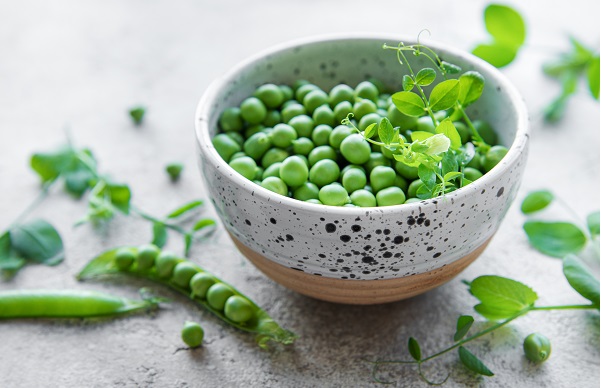
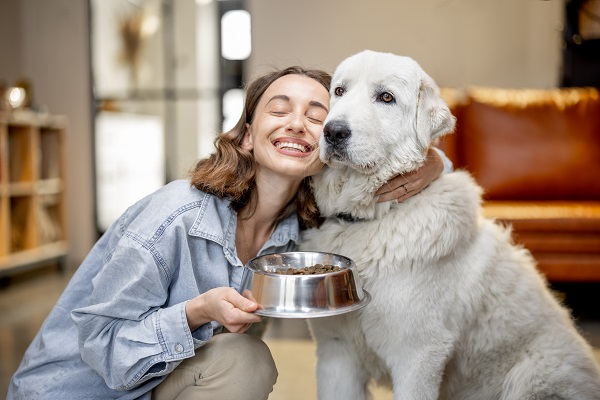
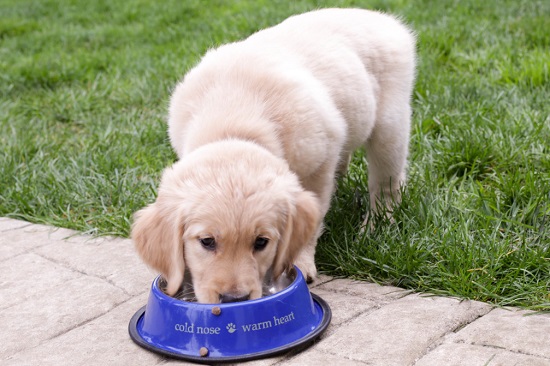
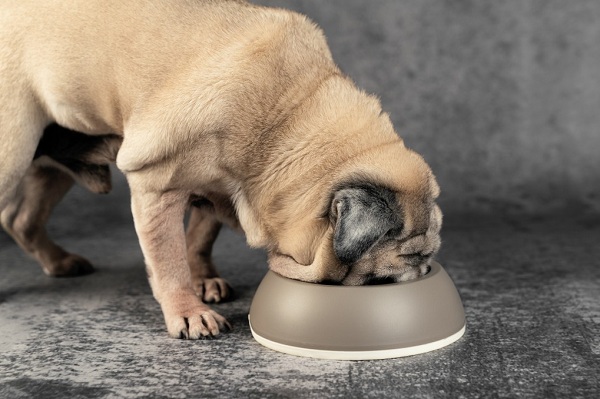
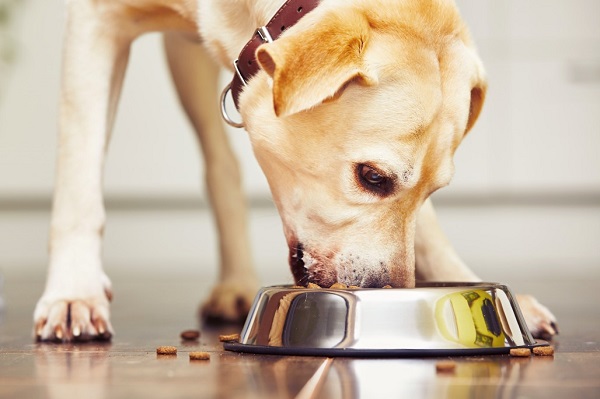

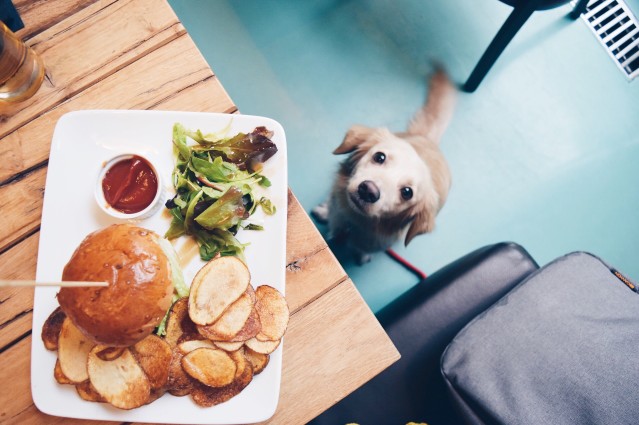














 in Chandigarh, India.
in Chandigarh, India. 
